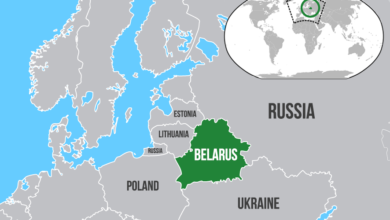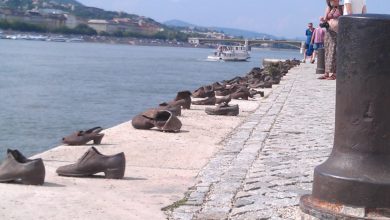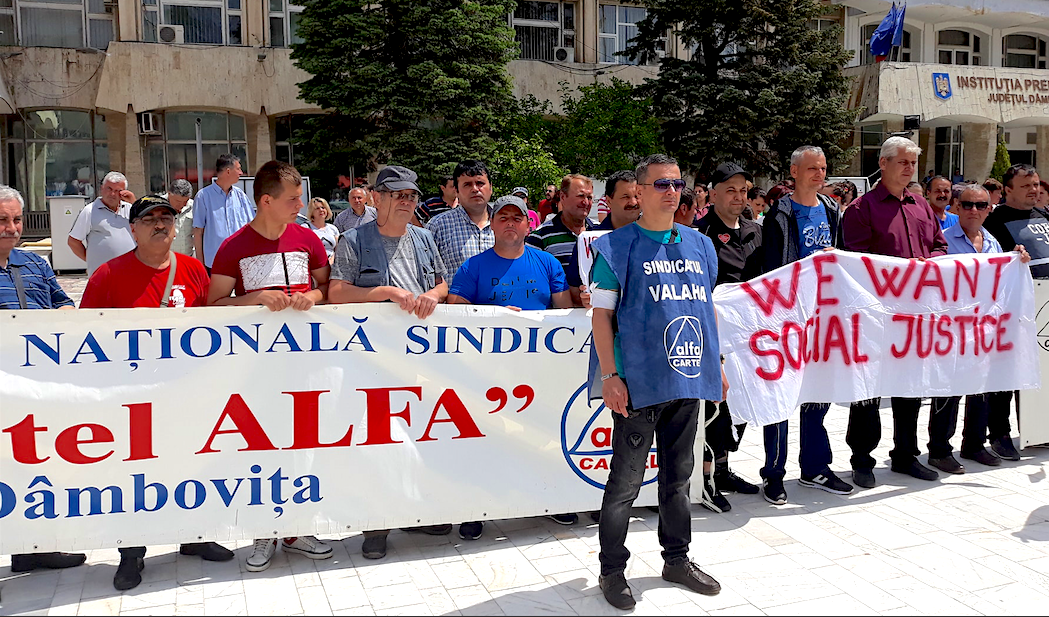Radovan Karadzic was brought before the International Criminal Tribunal for the Former Yugoslavia on Aug. 1, marking the beginning of yet another show trial in the aftermath of the U.S.-led breakup of the former socialist federation.
|
The ICTY hearing followed Karadzic’s arrest in mid-July and his extradition to The Hague. Karadzic, a leader of the Serbian Democratic Party, became president of the Serbian Republic of Bosnia-Herzegovina on May 13, 1992. After vanishing for over a decade, he now faces charges of war crimes stemming from the civil war that took place in Bosnia-Herzegovina from 1992 to 1996.
The trial, much like that of former President of Yugoslavia Slobodan Milosevic, is a pretense of due process meant for public consumption. Appearing before Judge Alphons Orie, Karadzic was prevented from reading a four-page account of his grievances and handing the document over to the court. A conviction by the imperialist-controlled court is guaranteed.
The court has good reason to fear an open hearing of the events of the civil war and the U.S./NATO role. The court remembers the trial of former Yugoslav president Slobodan Milosevic. Proceedings were to be broadcast globally, but when Milosevic was able to use the forum to expose the machinations and crimes of the U.S. and NATO, the transmissions quickly ended.
The motives and objectivity of the Karadzic indictment are already being challenged in the media. A French Press Agency story out of Yugoslavia reports that Richard Holbrooke made a deal in which Karadzic would not face any criminal prosecution as long as he abstained from political activity following the civil war—a version of events similar to Karadzic’s own account.
Holbrooke was a key U.S. negotiator of the Dayton Accords, which formally ended the civil war in Bosnia. Karadzic has demanded that both Holbrooke and Madeleine Albright, Secretary of State under President Clinton, be brought to court so that he can prove his case—a demand that is unlikely to be considered.
The story reads: “… Radovan Karadzic was protected by the United States until a CIA phone bug caught him breaking the terms of his ‘deal,’ the Serb newspaper Blic reported. … The newspaper claims Karadzic was secretly granted immunity in return for keeping a low profile.”
According to the story, Karadzic violated the agreement by engaging in political activity. When the U.S. government learned of his actions, Karadzic quickly became a target of the ICTY.
When news of Karadzic’s arrest became known in Serbia, militant demonstrations immediately broke out against the request for extradition. On July 30, over 15,000 protesters clashed with police, fighting back against tear gas and rubber bullets. Forty-six people were sent to the hospital, including 25 police.
Washington fuels nationalist divisions
Stoking the fire of nationalism within Yugoslavia has been a cornerstone of U.S. strategy since the 1990s, aimed at breaking up the multinational state in a classical divide-and-conquer ploy. Kosovo’s recent declaration of “independence” was the latest achievement of the United States and its European partners toward that goal.
Karadzic and other Serbian leaders appealed to Serbian nationalism as a way to stop the carving up of Yugoslavia and to assert some control over the resources and territory that were up for grabs at the time. Civil war engulfed socialist Yugoslavia, where integration across national lines had been predominant during the four decades of the republic’s existence. The result was a particularly bloody conflict that had neighbors fighting neighbors along newly exacerbated national and religious divisions.
The 1999 war and invasion of Yugoslavia by the United States and the dominant European capitalist powers, carried out under the NATO umbrella, was portrayed by the big-business media as an effort to stop the civil war. In fact, it was a war crime—an attack on a country which posed no threat to the United States or any other country.
While feigning concern for the different nationalities of the region, the real objective of U.S. and European imperialists was to carve up Yugoslavia so that they could easily exploit it.
To achieve victory over the Yugoslav people, they encouraged the break-up of the formerly socialist federation into separate nation-states. The United States, Germany, Britain, France, Italy and other western European capitalist governments supported the most right-wing nationalist and pro-capitalist governments, which privatized their economies and rolled back much of the gains that remained from the socialist period.
In an ongoing effort to give cover to the culprits behind this tragic dismemberment, those who resisted have been pursued, arrested, convicted and jailed by U.S./NATO forces. Predictably, the same “international court” that tried a number of figures from the former Yugoslavia will also try Karadzic and has rejected any and all charges against U.S. and NATO leaders.
Once the civil wars broke out, the conduct of the contending forces on all sides was based on narrow nationalism. As a result, people of all nationalities in Yugoslavia became victims of war. The imperialist exploiters—then and now—shed crocodile tears for the people of the Balkans while hiding their role in promoting and exacerbating the divisions that helped tear apart the country and lead to civil war.
In the early 1990s, Germany and Austria encouraged and funded bourgeois separatist movements in Slovenia and Croatia. The Croatian government, led by Franjo Tudjman, adopted the flag of the Nazi puppet state that existed in Croatia between 1941 and 1944—the only time an independent Croatian state had existed in modern times prior to 1991. The Croatian fascists, in their brief existence, murdered hundreds of thousands of Serbs, Roma and Jewish people.
The U.S. government initially opposed German efforts, but not out of concern for the territorial integrity of Yugoslavia or the lives of its peoples. Washington was focused on the war in Iraq and not in a position to struggle with Germany and other imperialist rivals over the breaking up of Yugoslavia.
With the overthrow of the Soviet Union, Washington’s focus shifted and it joined Germany in encouraging other capitalist-led separatist movements that provoked the civil war and destruction of Yugoslavia. Washington backed Alija Izetbegovic as the leader in Bosnia, the Yugoslav republic where no national or religious group accounted for a majority of the population. Izetbegovic, who had been a Nazi officer as a young man, called for making Bosnia a strictly Islamic state.
The Serbian people and their leaders became the focus of a particularly racist campaign prior to the 1999 U.S./NATO war. The Serbian population represented the greatest single obstacle to the goal of dismemberment. The demonization of Slobodan Milosevic, then President of Yugoslavia, thus became the centerpiece of the propaganda campaign that laid the basis for “saving” the different peoples of the Balkans from themselves.
The U.S. and NATO governments and militaries should be the ones on trial. It was their deliberate planning that encouraged, aided and abetted the centrifugal forces of bourgeois nationalism that led to the civil war. They are to blame for the thousands of deaths, the displacement of entire peoples and the dismemberment of Yugoslavia for imperialist exploitation.







